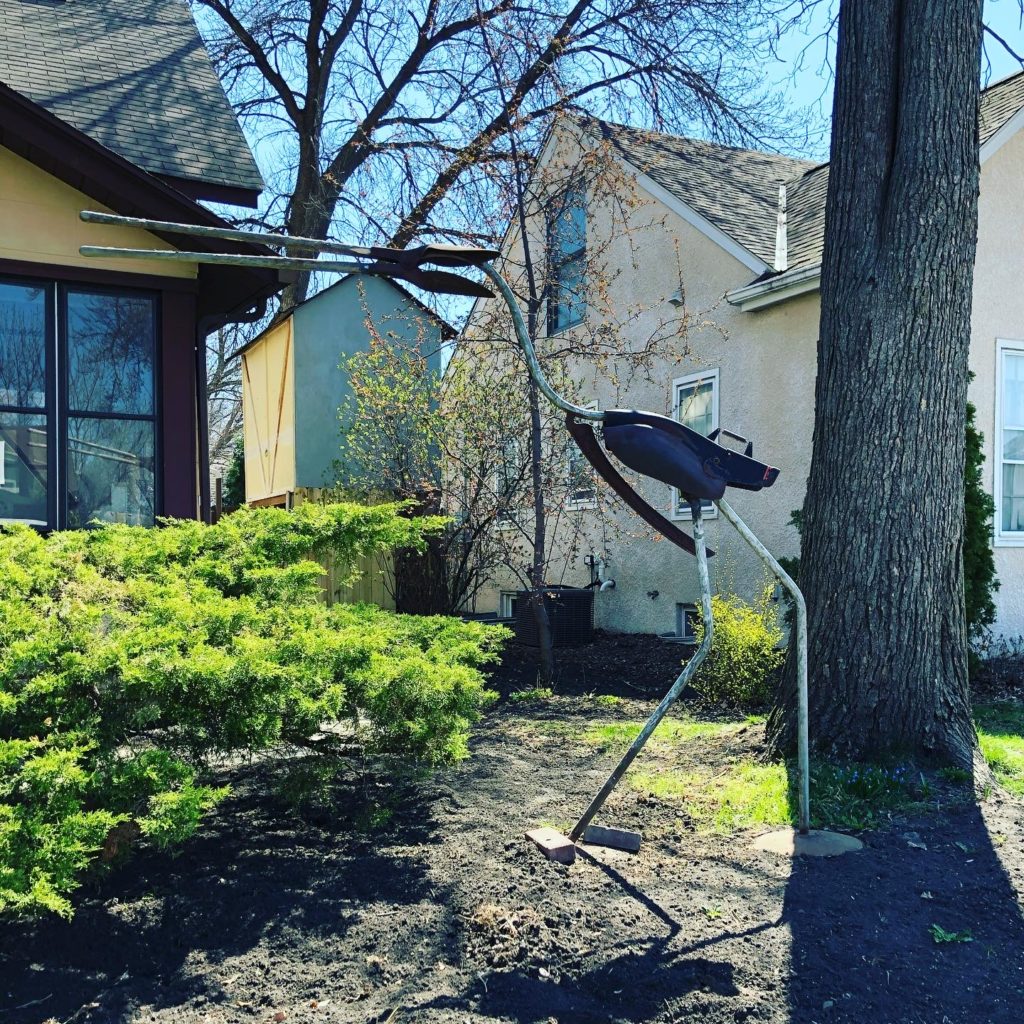3.5 miles
47th ave loop, short
52 degrees
Beautiful sunny breezy morning. A little more crowded than usual, but still got over 6 feet of distance from everyone. Heard a black capped chickadee calling out and waiting for an answer 3 times as I started my run:
Hello?
Hello?
Hello?
Listen.
Did I notice the river? I don’t remember.
The run was peaceful and relaxing but at moments, difficult and labored. I recited my poem–Ode to My Right Knee–a few times. Noticed how the alliteration for n was only 2 words: No noise. In some lines I found yesterday in my notes, I had 2 ns too: noisy nothingness
Anything else? Runners, bikers, and several pairs of walkers taking over the road. No turkeys. No way of seeing the river from high up on Edmund–too much green. Glanced at a few benches.
Thinking about green, here are a few lines about green in the spring, inspired by Rita Dove’s alliteration:
Ode to Green
Greedy green gluts gobbling gorges, grifting
vistas. Vast views vanished
or overrun. Orchestrated
take-overs: trees trimmed, tressed, twined,
voluminously vined.
Air altered. Advancing
leaves lining limbs
their thick thatches
blue-blocking blinding breathtaking.
Oh overcrowding obstruction! Oh
consuming, constricting color!
That’s all I have right now. I’ll keep working on it. I love the color green and seeing it in the spring, yet I dislike how excessive it is, how it overruns everything.
Started reading Marie Howe’s Magdalene last night. Wow! Love this poem:
Magdalene—The Seven Devils/ Marie Howe
“Mary, called Magdalene, from whom seven devils had been cast out”
Luke 8:2.
The first was that I was very busy.
The second—I was different from you: whatever happened to you could
not happen to me, not like that.
The third—I worried.
The fourth—envy, disguised as compassion.
The fifth was that I refused to consider the quality of life of the aphid,
The aphid disgusted me. But I couldn’t stop thinking about it.
The mosquito too—its face. And the ant—its bifurcated body.
Ok the first was that I was so busy.
The second that I might make the wrong choice,
because I had decided to take that plane that day,
that flight, before noon, so as to arrive early
and, I shouldn’t have wanted that.
The third was that if I walked past the certain place on the street
the house would blow up.
The fourth was that I was made of guts and blood with a thin layer
of skin lightly thrown over the whole thing.
The fifth was that the dead seemed more alive to me than the living
The sixth—if I touched my right arm I had to touch my left arm, and if I
touched the left arm a little harder than I’d first touched the right then I had
to retouch the left and then touch the right again so it would be even.
The seventh—I knew I was breathing the expelled breath of everything that
was alive, and I couldn’t stand it.
I wanted a sieve, a mask, a, I hate this word—cheesecloth—
to breath through that would trap it—whatever was inside everyone else that
entered me when I breathed in.
No. That was the first one.
The second was that I was so busy. I had no time. How had this happened?
How had our lives gotten like this?
The third was that I couldn’t eat food if I really saw it—distinct, separate
from me in a bowl or on a plate.
Ok. The first was that. I could never get to the end of the list.
The second was that the laundry was never finally done.
The third was that no one knew me, although they thought they did.
And that if people thought of me as little as I thought of them then what was
love?
The fourth was I didn’t belong to anyone. I wouldn’t allow myself to belong
to anyone.
The fifth was that I knew none of us could ever know what we didn’t know.
The sixth was that I projected onto others what I myself was feeling.
The seventh was the way my mother looked when she was dying,
the sound she made—her mouth wrenched to the right and cupped open
so as to take in as much air… the gurgling sound, so loud
we had to speak louder to hear each other over it.
And that I couldn’t stop hearing it—years later—grocery shopping, crossing the street—
No, not the sound—it was her body’s hunger
finally evident—what our mother had hidden all her life.
For months I dreamt of knucklebones and roots,
the slabs of sidewalk pushed up like crooked teeth by what grew underneath.
The underneath. That was the first devil. It was always with me
And that I didn’t think you—if I told you—would understand any of this—
